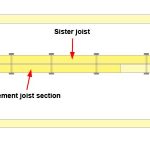In this article, we will be looking at how someone can become a carpenter, at the age of 30 or older. This will include, how they can learn the skills required to become a competent carpenter. As well as what they should expect to be paid whilst they learn this trade.
Carpentry and joinery is a great trade to learn. It is a skilled profession, that is always in demand if your good at the job.
Most people will train in carpentry after finishing school. The traditional route to becoming fully qualified, is an apprenticeship. This generally takes 3 years and is a combination of college and onsite work.

In general, an apprentice is paid a low wage as they learn, and this is increased through their apprenticeship until they become fully qualified. Below you can see the hourly rates for an apprentice carpenter from the year starting April 1st, 2022:
- First year apprentice and workers under 18 years old – £4.81
- Between 18 and 20 – £6.83
- Between 21 and 22 – £9.18
- Aged above 22 is paid at the national living wage of £9.50.
In theory, an employer could pay an older first year apprentice, at the apprentice rate of £4.81. However, once they finish their first year, this would need increasing to the minimum wage for their age group.
In reality, if you are starting with a company at age 30 years or older, then it is very unlikely they would pay you £4.81 an hour for your first year. Although legally, they are able to do this.
Becoming a carpenter at age 30+
Retraining for a new career can be a daunting task, especially if you have responsibilities and financial commitments. However, there really is no age limit to learning a new trade.
If you plan to work on building sites, you will need to do an official apprenticeship. This is a requirement, in order to receive relevant paperwork allowing you to work on site.
You can also learn some good basic skills via a college course. However, there is no doubt, that you will learn the most by working in a real carpentry position. You will learn and improve the most, by actually doing the job. Ideally, you should look to train under a qualified carpenter.
Some companies do like to hire younger apprentices. This is mainly due to the lower wages whilst they learn. For example, someone straight out of school, can often be paid below the national living wage for their entire apprenticeship. However, if you are older and show a high level of enthusiasm, most employers will consider starting someone at the minimum wage.
In general, a 30+ year old, with a CV, and previous work references can often be appealing. This is mainly because they already have some general work experience.
Also, if you have previous experience in any other area of construction, this could also go in your favour.
With all that said, your level of enthusiasm and willingness to learn, will often be the main thing an employer is looking for. If they see you will be hard working and reliable, then there is a very good chance of being hired.
Be prepared to start at the bottom
As with any other career change, you must be prepared to start at the bottom. It is very likely that you will be doing a lot of manual labour. This will include things like unloading, carrying, and moving tools, equipment, and materials.
You will also be keeping the work area tidy by sweeping up and removing waste materials. Also, carrying out less skilled jobs, that the experienced carpenters need doing. Then when you have spare time between these duties, you can help and learn from more experienced workers.
As a good apprentice, your goal should be to completely remove friction for the skilled tradesmen. This can be done by doing all the unskilled tasks, so they can concentrate on more important work.
The less unskilled work they have to do, the happier they will be with you. Plus, if you work hard and keep on top of the less skilled duties, you will have more free time to help and learn on the more skilled jobs.
If I was personally retraining as a carpenter, this would be my entire pitch in any job interview. Show them you are happy to start and learn from the bottom and you will be an extremely hard worker. They need to see you as an asset that will add value to the team, and not as a liability that will slow the job down.
Nothing will beat enthusiasm and strong work ethic. A 17-year-old apprentice may be cheaper to hire, but if they are lazy and always on their phone it really is irrelevant.
Can you teach yourself carpentry?
We live in an interesting time. Never has there been so much information readily available to the average person. You can literally search places like Google, and especially YouTube, for highly detailed tutorials on most jobs.
Whilst I wouldn’t recommend trying to learn carpentry entirely from online resources, it can certainly provide a lot of useful information. For example, if you want to hang a door, there will be several detailed videos that walk through the entire process.
Here at The DIY Fix, we often put out full tutorials. For example, you can see a really popular DIY bin store tutorial we did by clicking here.
This is a great example of a beginner project, it just involves measuring, cutting, and fixing timber together. The level of skill is quite basic. However, the end result is very impressive. I have even had several friends and family members ask me to make them one. So, there is also decent money to be made with these types of simple projects as you learn.
Whilst online learning is not a replacement for actually doing the work, it is a fantastic resource, that can drastically speed up your learning curve.
Conclusion
I think this article demonstrates, that you can definitely become a carpenter in the UK at age 30+. The main thing you need to achieve this, is to learn from experience. The best way to gain this experience, is to work with skilled carpenters and dedicate yourself to learning.
As long as you are prepared to start from the bottom and work hard, there are many companies that would be willing to hire you. Qualities such as punctuality, reliability, work ethic, and enthusiasm, will make you look like an asset to a potential employer.
When you interview, concentrate on what you bring to the table and how you can help them and their business. If you can do this, whilst also showing how keen you are to learn, it won’t be long before you’re working on the tools.




